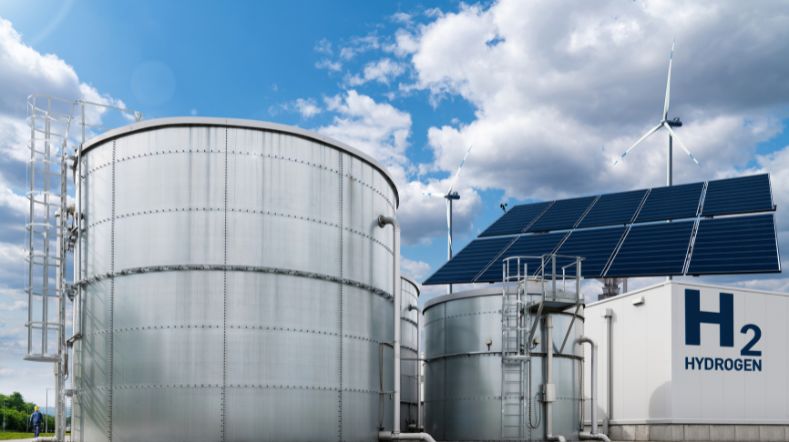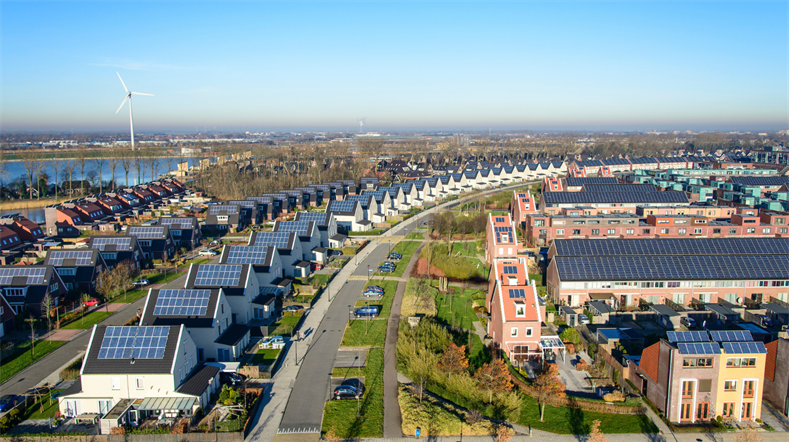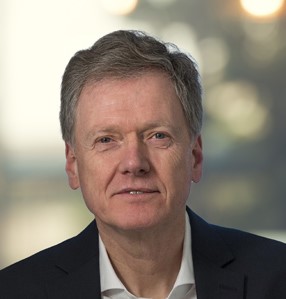
Collaboration TNO and Elcogen for development Solid Oxide Electrification Technology in Europe
TNO and Elcogen (Tallinn, Estonia), a leading European manufacturer of technology that enables delivery of efficient, affordable green hydrogen and emission free electricity are pleased to announce that they recently joined forces and initiated a collaboration agreement under the Important Projects of Common European Interest scheme (IPCEI) to develop advanced SOE technology for future market demands.
The primary objective of the partnership is to drive innovation within important projects of common European interest, with the collective aim to accelerate the energy transition. With the growing number of offshore wind farms, green renewable energy production via electrolysis becomes ever more critical. Elcogen’s optimised stack technology promises increased profitability, not only reducing CO2 emissions but also providing a cost-effective alternative to traditional fossil fuels.
Solid oxide electrolyser technology
Elcogen, with its leading development and manufacture of proprietary core components deployed in the solid oxide electrolyser fuel cell systems, and TNO, with leading expertise in solid oxide electrolyser technology, have been working alongside one another for more than a decade across projects such as NewSOC, CleanHyPro, OUTFOX and PressHyous under the Horizon Europe framework and within the framework of the VoltaChem shared innovation program.
TNO’s ongoing partnership with Elcogen further highlights the joint commitment to rapidly advancing clean energy solutions. Within this new collaboration, key performance indicators (“KPIs") have been formulated in relation to the future of solid oxide stack efficiency, durability, scalability and overall impact.
Solid oxide electrolysis stands out from other technologies due to its ability to operate at significantly high temperatures while enabling around 20-30% higher efficiency when compared to low-temperature electrolysers. Solid oxide core components also have the ability to produce hydrogen from renewable electricity as well as generate renewable energy (power and heat in fuel cell mode) from hydrogen and other fuels within an integrated setup.
Partnership
TNO’s ongoing partnership with Elcogen further highlights the joint commitment to rapidly advancing clean energy solutions. Within this new collaboration, key performance indicators (“KPIs") have been formulated in relation to the future of solid oxide stack efficiency, durability, scalability and overall impact.
Enn Õunpuu, CEO of Elcogen, commented: 'Our collaboration with TNO and with ECN previously has been central to Elcogen’s development. Our long-standing relationship has jointly established several key improvements in solid oxide technology, and I expect that this new collaboration agreement will expand solid oxide stack technology into a new era.'
Martijn de Graaff, TNO Program Director VoltaChem, commented: 'Together with our business community, we aim for accelerated innovation and implementation of Power-2-X technologies and value chains in order to reduce the CO2 footprint of hydrogen and chemicals production. Solid Oxide Electrolysis is an important technology building block in this ambition, especially because it can be efficiently integrated in the high-temperature process industry. It’s great to see a company like Elcogen taking the next step in developing its technology towards larger scale together with VoltaChem’s initiating partner TNO.'

'TNO has a strong dedication to tackle global warming. We need to speed-up, accelerate innovation and the deployment of new technology. In our collaboration with Elcogen, we will deploy our in-depth knowledge, experience and facilities in the field of water electrolysis and specifically solid oxide technology in order to support Elcogen in achieving their ambition. This is the initiation of a close collaboration in order to accelerate the hydrogen economy.'
Producing hydrogen from renewable electricity
Solid oxide electrolysis stands out from other technologies due to its ability to operate at significantly high temperatures while enabling around 20-30% higher efficiency when compared to low-temperature electrolysers. Solid oxide core components also have the ability to produce hydrogen from renewable electricity as well as generate renewable energy (power and heat in fuel cell mode) from hydrogen and other fuels within an integrated setup.
Get inspired
Path to sustainability: carbon removal in the Dutch energy system


Hydrogen in the energy system: The future of sustainable energy in the Netherlands and Europe


Preventing grid congestion: how smart devices can optimize electricity usage in the Netherlands


Small modular reactors in the Dutch energy system - Combined heat and power production in industry


TNO explores PFAS alternatives with European partners


